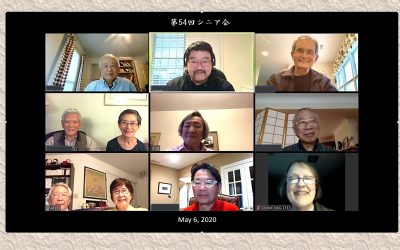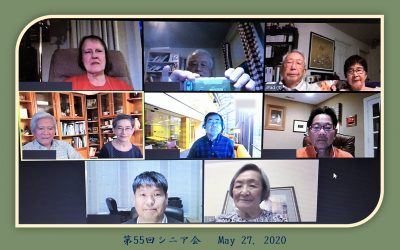”Senior Nihongo Conversation Table” enjoyed an ”Online Senior Meeting" for the first time. The Next Meeting: May 20 (Wed) 7:30 pm @ Your Home. Anyone 50+years young who speaks Nihongo (Japanese language) is welcome....
Senior Nihongo Meet-up 5/6/2020
read more


